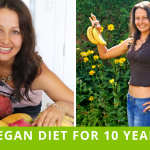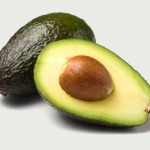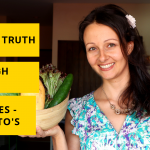If you want to boost your fertility as a female and increase your chance of conception – your diet plays a central role.
According to the Centers for Disease Control and Prevention in the US, over 6 million women aged 15-44 have difficulty getting pregnant or staying pregnant. (1)
Around 1 in 7 couples from the UK may have difficulty conceiving. This is approximately 3.5 million people. (2)
Infertility means not being able to get pregnant after 12 months of trying or 6 months if you are a woman who is aged 35 years or older.
If you are one of these women who has problems with their fertility, then you know exactly how it feels to be in a place where your body doesn’t seem able to conceive a child.
Frustration, anger, sadness, and a sense of hopelessness – a host of emotions can spring forth from finding yourself in this situation and seemingly unable to do anything about it.
Many people think that fertility issues happen due to some unfortunate medical or health condition which they have little or no control over.
But often this is not the case.
I talk about it in this video:
Some of the factors that can affect your fertility.
- Toxic load from unhealthy foods and drinks,
- Weight issues,
- Thyroid and other hormonal problems,
- Unhealthy living environment, including environmental toxins,
- Gut problems,
- Excess insulin levels. About 100 million people in the US live with pre-dibetes or diabetes which can then result in weight problems and PCOS, affecting your fertility.
The medical way of treating fertility issues.
In the majority of cases, traditional doctors won’t advise couples wanting to conceive to change their diet and instead will offer interventions.
These can include:
- Hormone medications,
- Surgery to remove scar tissue and blockages from the pelvic area, uterus or fallopian tubes,
- Intrauterine insemination (IUI) placing sperm inside the uterus close to ovulation,
- Assisted reproductive technology (IVF). This involves retrieving mature eggs from a woman’s ovaries, fertilizing them with a man’s sperm in a lab, then transferring the embryos into the uterus of the women after fertilization.
Unfortunately there is no guarantee when it comes to fixing problems with female fertility.
For example with IVF treatment, there is at best a 40% chance of conceiving and this then declines the older the woman is.
Cost is also another issue and IVF treatment in the US costs between $12,000-$15,000 dollars.
How to boost your fertility with a plant-based diet.
Diet is one of the biggest changes that you’ll need to implement in order to balance infertility and increase your chances of conceiving.
There was a famous study carried out called the Harvard Nurses Study, which followed 18,000 women. (3)
They were trying to get pregnant for 8 years and as part of the study they noted down what foods they consumed.
What they found was striking.
They discovered that by adding just a single serving of meat per day, their risk of infertility increased by 30%. So this meant that eating meat, and in particular poultry, appeared to negatively interfere with their ovulation.
Fish and other seafood intake may introduce hormones and other pollutants that interfere with male fertility by lowering sperm count and sperm quality.
The Harvard Medical school recommends that you turn to vegetable protein and replace meat with plant protein to improve your fertility. (4)
This means switching to a highly nutritious vegan diet that includes a healthy amount of carbohydrates, protein and fat, as well as fiber, protein, healthy ratios of omega 3 and 6 fats, vitamins and minerals.
It has helped me conceive our daughter naturally after years on a hormonal rollecoaster, I share the story of my pregnancy here. I also talk about how I healed PCOS, which can affect your fertility (and how you can heal yours) here.
A balanced plant-based, vegan diet is packed with disease-busting, hormone rebalancing nutrients and is ideal for boosting fertility and for a healthy pregnancy.
Just as importantly, a whole foods vegan diet that includes plenty of raw food and whole plant food excludes all the unhealthy ingredients that you need to avoid – hydrogenated fats, saturated animal fats, cholesterol, cancer-promoting substances, artificial sweeteners, processed sugar, refined salt, etc.
How your weight affects your fertility.
Obesity is a big problem in our world and it is directly linked to fertility (or lack of it).
Overweight and obese women have a higher incidence of menstrual dysfunction and anovulation, hence a high risk for reproductive problems. (5)
Weight problems also increase the risk of miscarriage and pregnancy complications.
Obese men are 3 times more likely to have a low sperm count than men who have a healthy weight. They also have lower levels of the hormone testosterone and higher levels of oestrogen. (6)
People who eat a whole food, vegan diet are leaner and weight is another important factor when it comes to boosting your chances of conceiving.
It is very important to get yourself in shape as a couple before you conceive. Read more about losing weight with vegan and raw foods here.
The key steps to focus on to boost your fertility naturally:
- Cleansing your body of toxins,
- Eating a balanced, whole food, plant-based vegan diet,
- Getting enough vitamin D,
- Understanding your hormones and reversing or controlling your hormone imbalances, including thyroid issues,
- Balancing your gut health, clearing out pathogens, including parasites,
- Making sure that you maintain a healthy lifestyle with regular exercise and quality sleep on a regular basis.
Healthy nutrients play a vital part in fertility, this is why it’s important to consume a diversity of plant foods. This lifestyle can not only help you lose weight and balance your hormones naturally, but also increase your chances of conceiving and birthing a healthy child.








